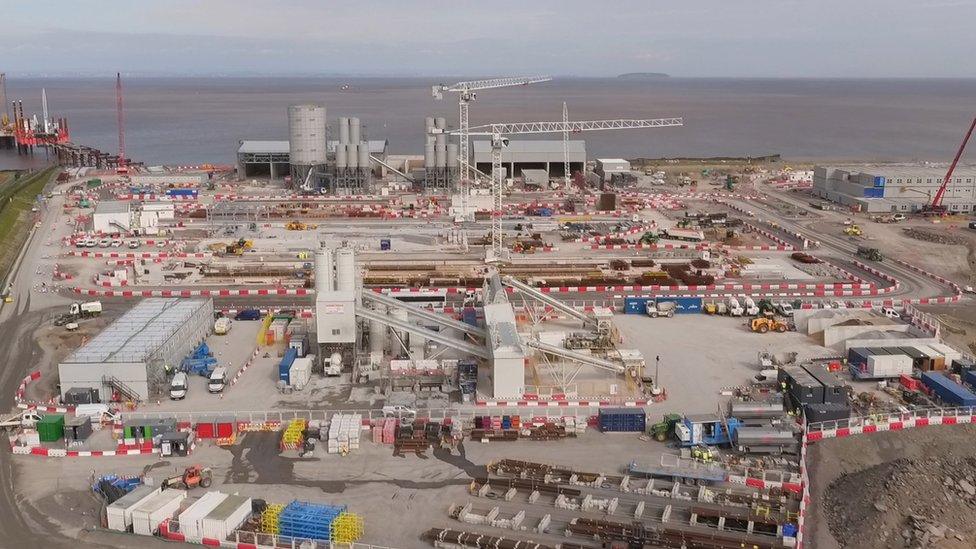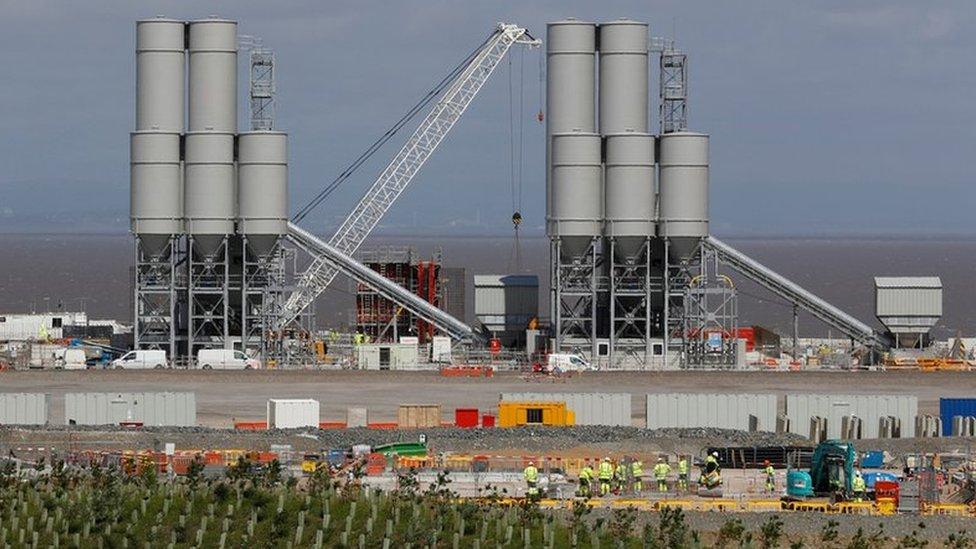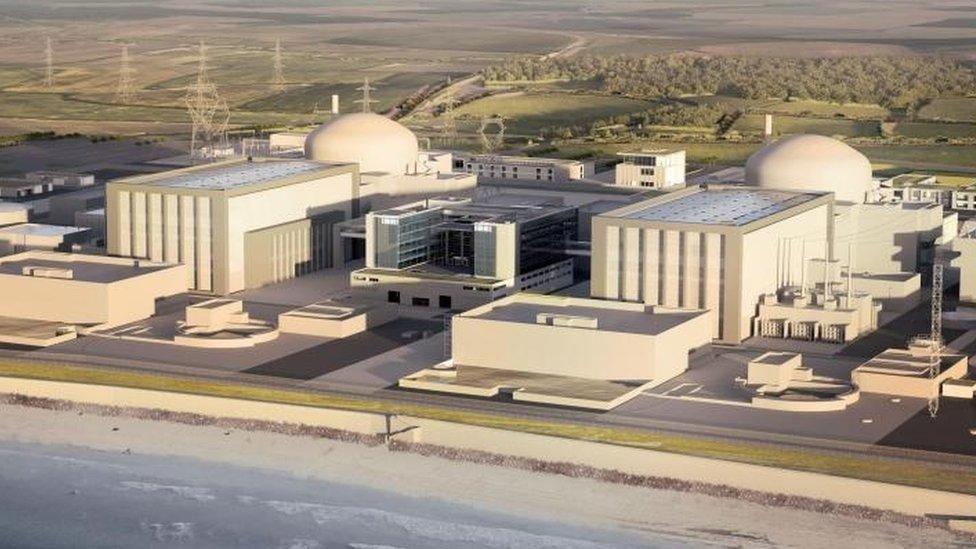Hinkley Point will 'hit the poorest hardest', say MPs
- Published
- comments

A group of MPs has said that the £18bn cost of the UK's new Hinkley Point C nuclear power station will hit the country's poorest the hardest.
The Public Accounts Committee said that households had been "locked into an expensive deal lasting 35 years".
In a report, it said there were no plans for Hinkley Point to provide wider benefits such as jobs and skills.
But EDF, the French firm funding two thirds of the project, said it would bring "huge benefits" to Britain.
The government gave the green light to Hinkley Point near Bridgwater in Somerset last year, in a deal which guarantees EDF a fixed price of £92.50 per megawatt hour for the electricity it produces for 35 years.
If it falls below that level, consumers will pay the difference.
The Department for Business, Energy and Industrial Strategy estimates that top-up payments will cost consumers around £30bn.
In its report examining the deal, the Public Accounts Committee said: "Over the life of the contract, consumers are left footing the bill and the poorest consumers will be hit hardest. Yet in all the negotiations no part of government was really championing the consumer interest."
The committee's chair Meg Hillier said: "Bill-payers have been dealt a bad hand by the government in its approach to this project.
"Its blinkered determination to agree the Hinkley deal, regardless of changing circumstances, means that for years to come energy consumers will face costs running to many times the original estimate.
"It doesn't know what UK workers and business will gain from this project, and appears to have no coherent idea of what to do about it."
Public Accounts Committee recommendations
The committee has proposed that the Department for Business, Energy and Industrial Strategy:
Needs to draw up a plan to create wider economic benefits from Hinkley Point and explain how they will prove they have been achieved.
Should commission an independent assessment of its effect on consumers
Publish a strategic case for nuclear before any more plants are agreed
Ensure proper cost/risk analysis of the funding options for all future big infrastructure projects
Provide a Plan B for the UK's energy security if Hinkley Point runs into trouble
Ensure thorough monitoring of Hinkley Point's construction
EDF Energy said: "The cost of Hinkley Point C for customers has not changed and they will pay nothing for its reliable, low carbon electricity until the station is completed.
"The agreed price is lower than 80% of other low carbon capacity contracted so far and the project has restarted UK nuclear construction after a quarter century. Construction is fully underway and is already delivering a huge benefit to British jobs, skills and industrial strategy.
The company said: "It is drawing on firms from across Britain and the South-West with 2,400 employees at the site and is on track to meet its next milestones."
The Committee's proposals follow a report in June by the National Audit Office which called Hinkley Point C "a risky and expensive project" and said the costs and risks for consumers had not been sufficiently considered.
- Published3 July 2017

- Published23 June 2017
